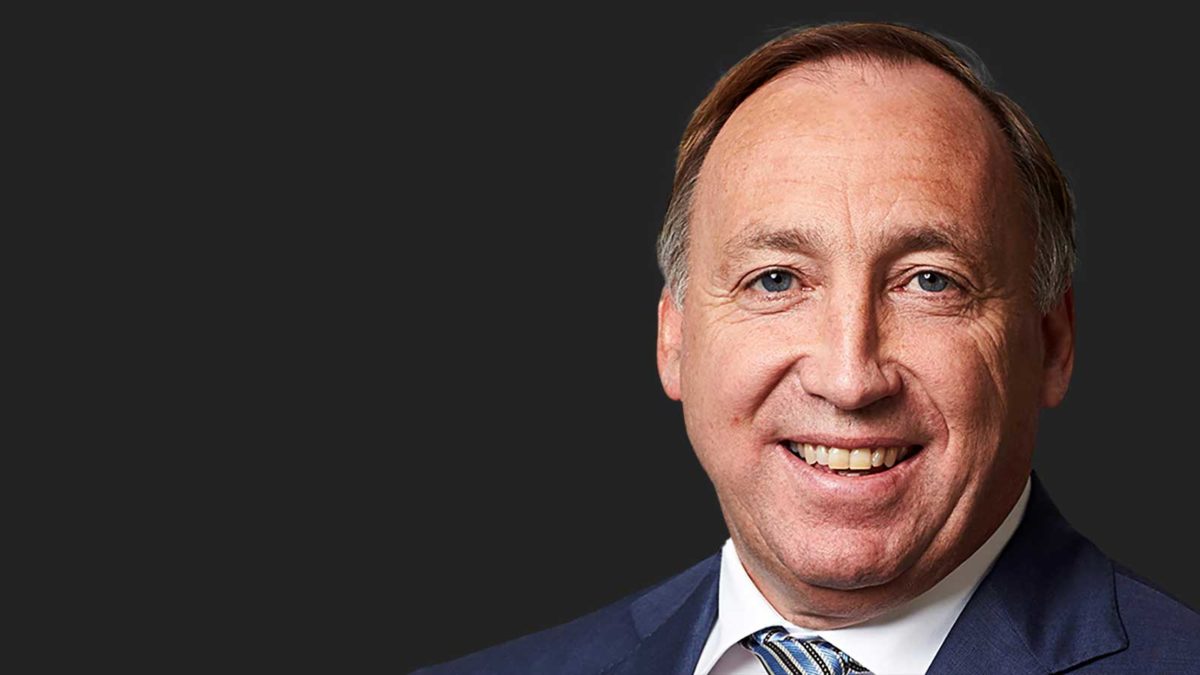Delaney: Size creeps up on you (but venture capital stays the same)
As AustralianSuper continues to grow, Mark Delaney is focusing his attention on the burgeoning private markets space and the problem of culture in megafund land.
“Size can creep up on you. You stand still, and all of a sudden you’re bigger than what you think you are. I first started managing pension money 20 years ago, when we were $3 billion; now we’re $250 billion,” Mark Delaney, AustralianSuper chief investment officer, told Frontier’s annual conference on Thursday (October 7).
“For us, given AustralianSuper has been such a strong-growing fund – and I think a lot of the funds are in a very similar position – there’s no point in building a portfolio or an approach for where we are today. We need to build one for five years’ time… You’ll get into trouble, I like to say, if you try and wear the same shorts you were wearing when you were a teenager. You have to have the clothes to fit the size you are.”
While overarching investment strategy stays roughly the same, the thing that changes “dramatically” is the implementation approach, which for AustralianSuper has entailed a well-documented shift away from a multi-manager strategy and towards greater internalisation of its investment team. That’s come with greater efficiencies for the fund, and fewer hurt feelings outside it.
“As we become larger, managers become much more sensitive about moving money between them, and the good managers are hard to get into,” Delaney said. “Internal gives you the chance of moving money around in large size without them being upset that you’re putting their business at risk.”
“I’m not sure that if I was the internal manager and you have your portfolio size go up by two or three times whether you’d like that too often, but for me at the top it gives me a lot more control in terms of tweaking the strategies rather than having to manage around external managers. And you can do that far more quickly.”
But while AustralianSuper’s investment strategy might not have changed dramatically, it has certainly taken a greater interest in private markets – as have other funds, and the Future Fund – as they look to be a safe harbour for returns as investors stare down the barrel of years of muted equity market returns. Of course – as Delaney acknowledged – Frontier was a pioneer of “big private market allocations” in the pension fund portfolios, well before they became globally ubiquitous.
“The portfolios of a lot of the pension plans are really the portfolios designed by Frontier the better part of 20 years ago. And we’ve all just slavishly followed them ever since. Luckily, the world’s adopted that model,” Delaney said.
“There’s a lot less differentiation in people’s view of private markets than what there was ten years ago, because everybody’s on board. That itself is an interesting topic – what do you do when every global pension plan’s strategy is to increase private markets?”
A recent winner for AustralianSuper in private markets has been venture capital. While it doesn’t form a core part of the strategy – the fund tends to focus on buyouts – “the numbers in there are just enormous.”
“I remember, IFM early in the 2000s, had an Australian private equity fund, and the person who was organising that came from a Frontier predecessor, and he said that “You really can’t do private equity unless you invest in venture”,” Delaney said.
“That’s where all the super returns come from. Without venture you’ve just got unlisted markets. There was a long dry spell between that ideological view of 2001, 2002 and 2020, but gee, it’s come back and paid out in spades in the last few years.”
New AustralianSuper CEO Paul Schroder also recently told the “Australian Financial Review” that the fund would purchase more unlisted assets, and that it would do it without as many partners as it accelerates its expansion overseas. That can pose a problem to preserving the industry fund culture – and its purpose – in that the personnel in those overseas offices don’t have any particular connection to the goal of superannuation, which is held as priority one by the fund’s executives.
“What you’re looking for with all the staff you get is staff who are excited about being part of a for-purpose organisation. They want to be successful as investors, but they want something more than that – they want to make a difference,” Delaney said.
“Internationally, that’s more challenging. In Australia, we can say “We’re going to make a difference to the retirement income of 2.5 million Australians. You’ve got a really clear purpose… So we need to find a way to make the purpose real to our global staff, so that it can live and breathe.”











